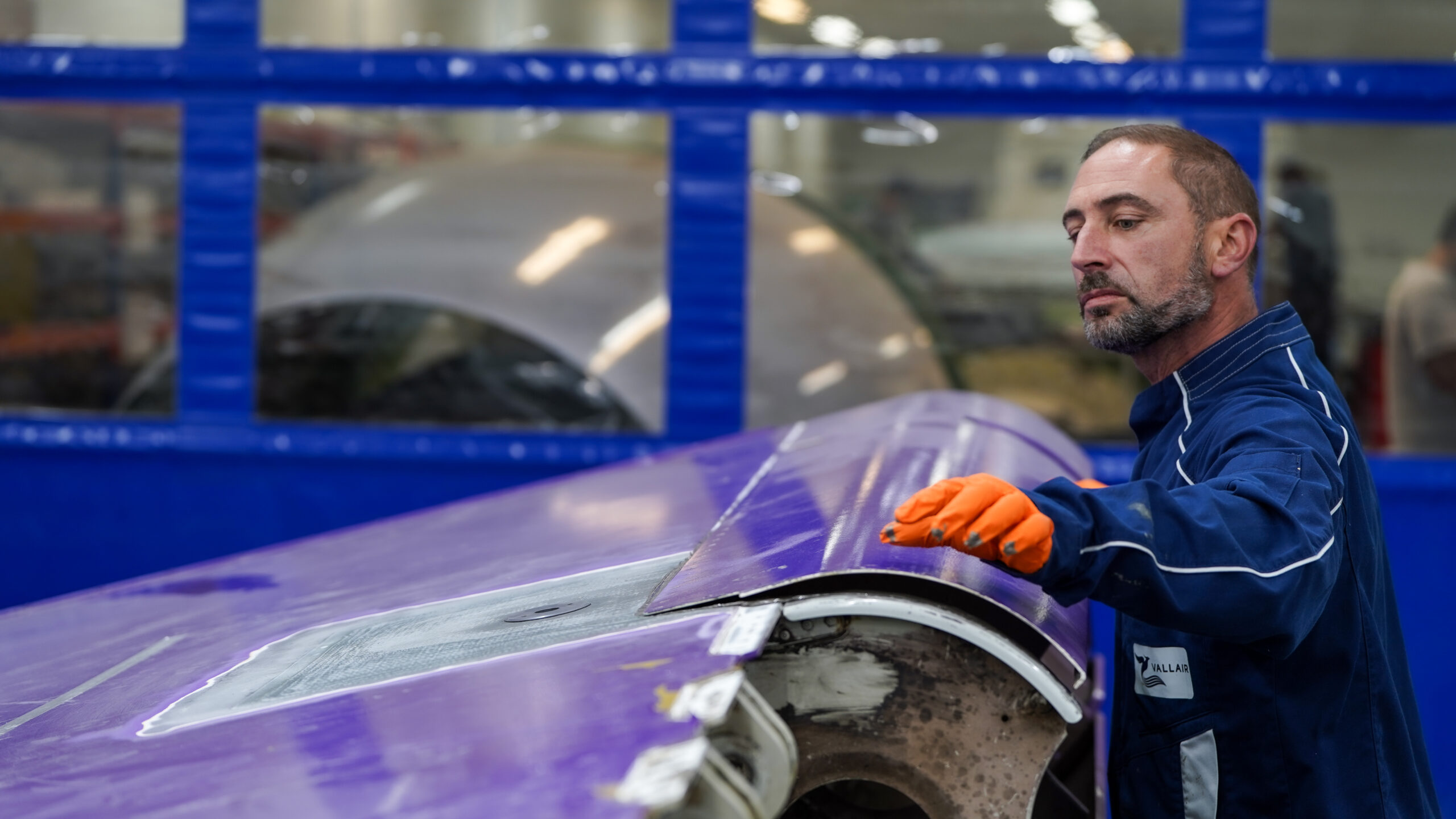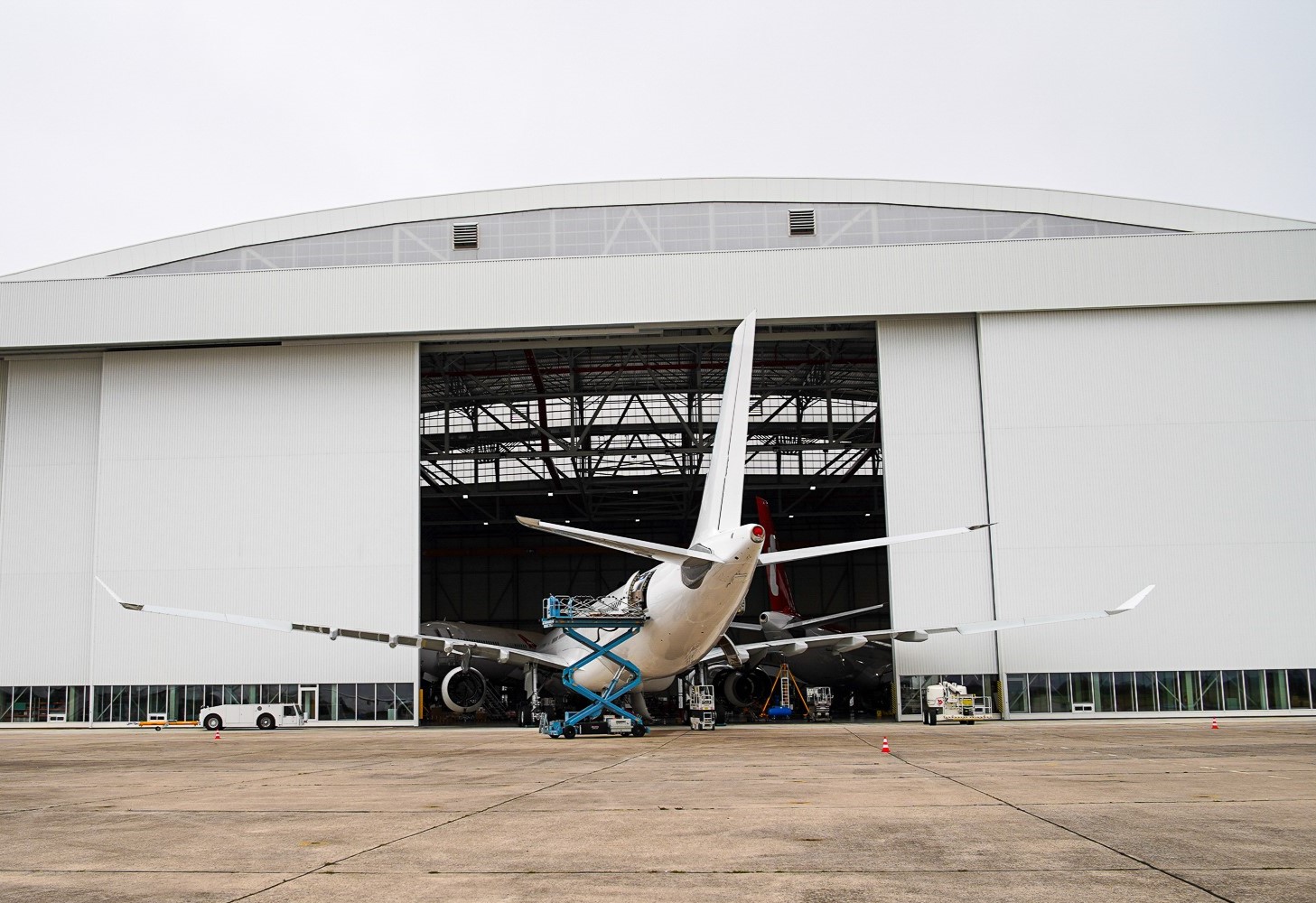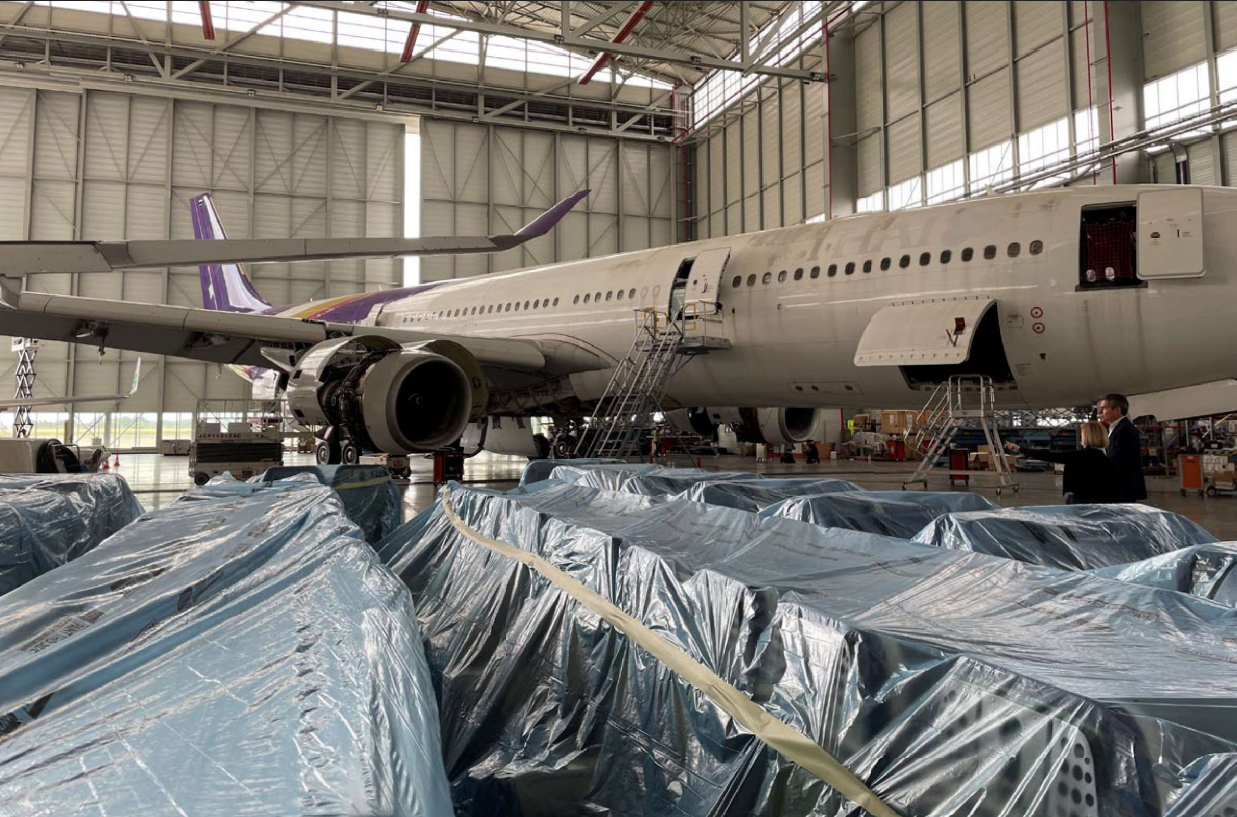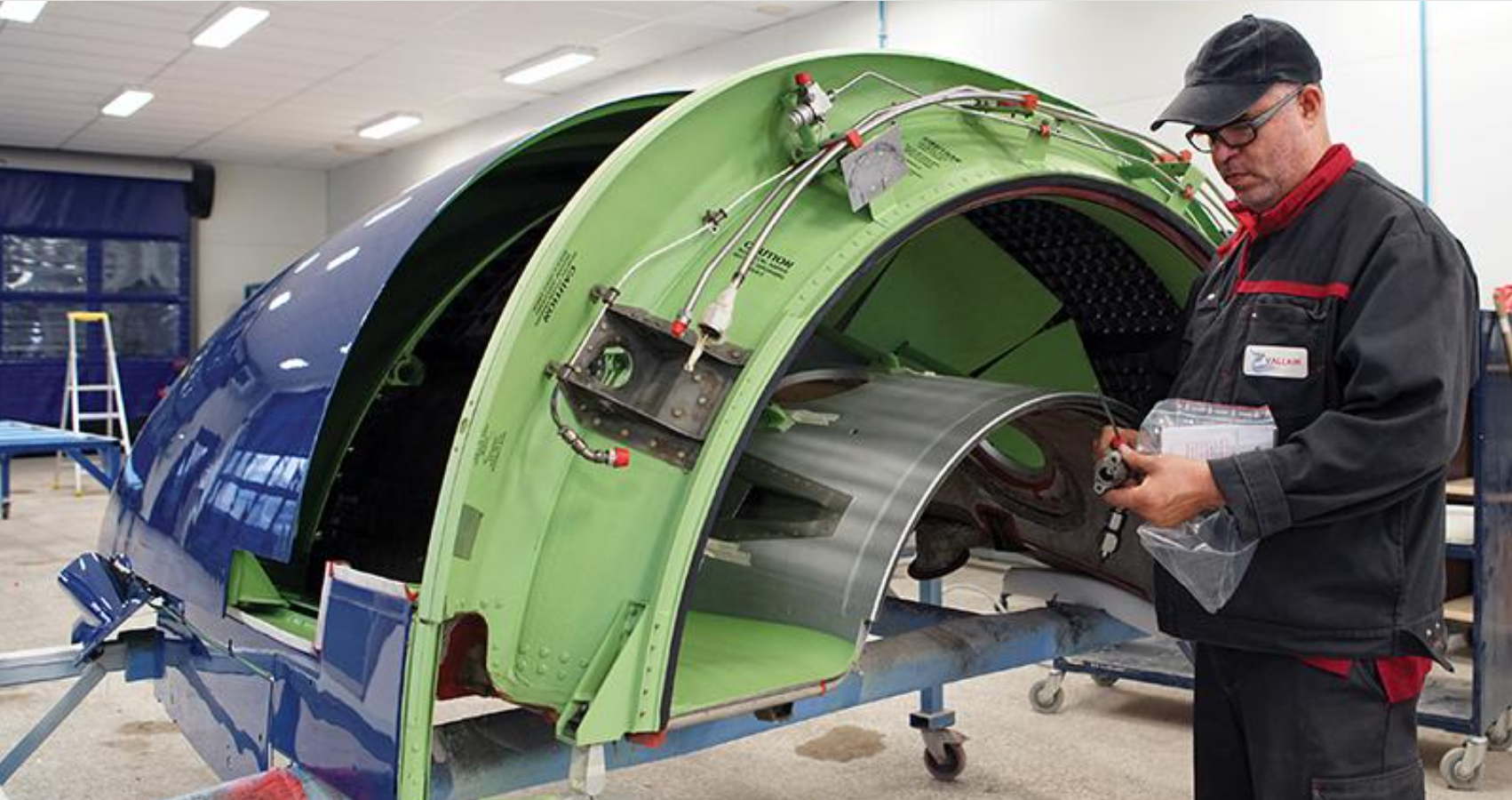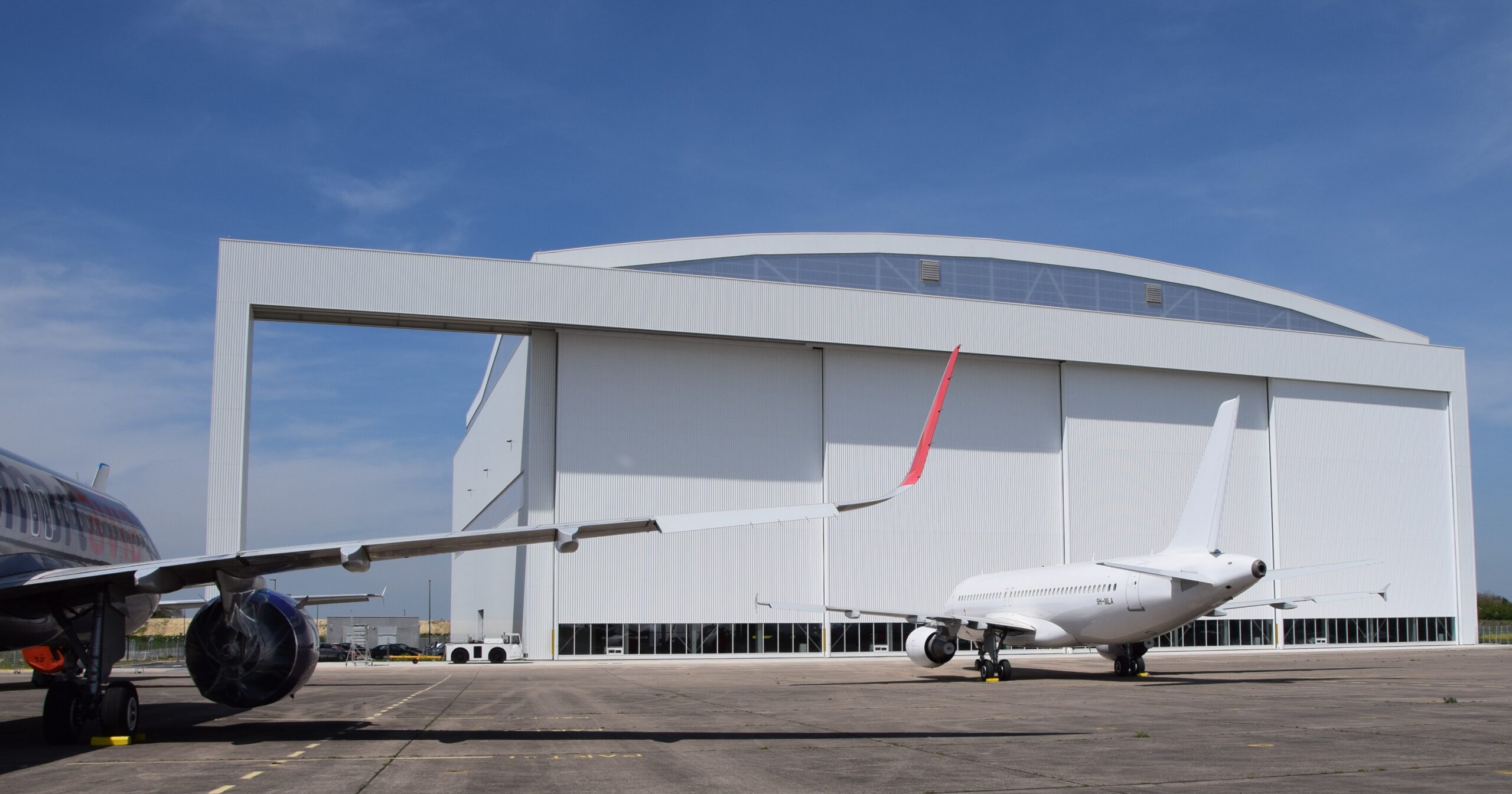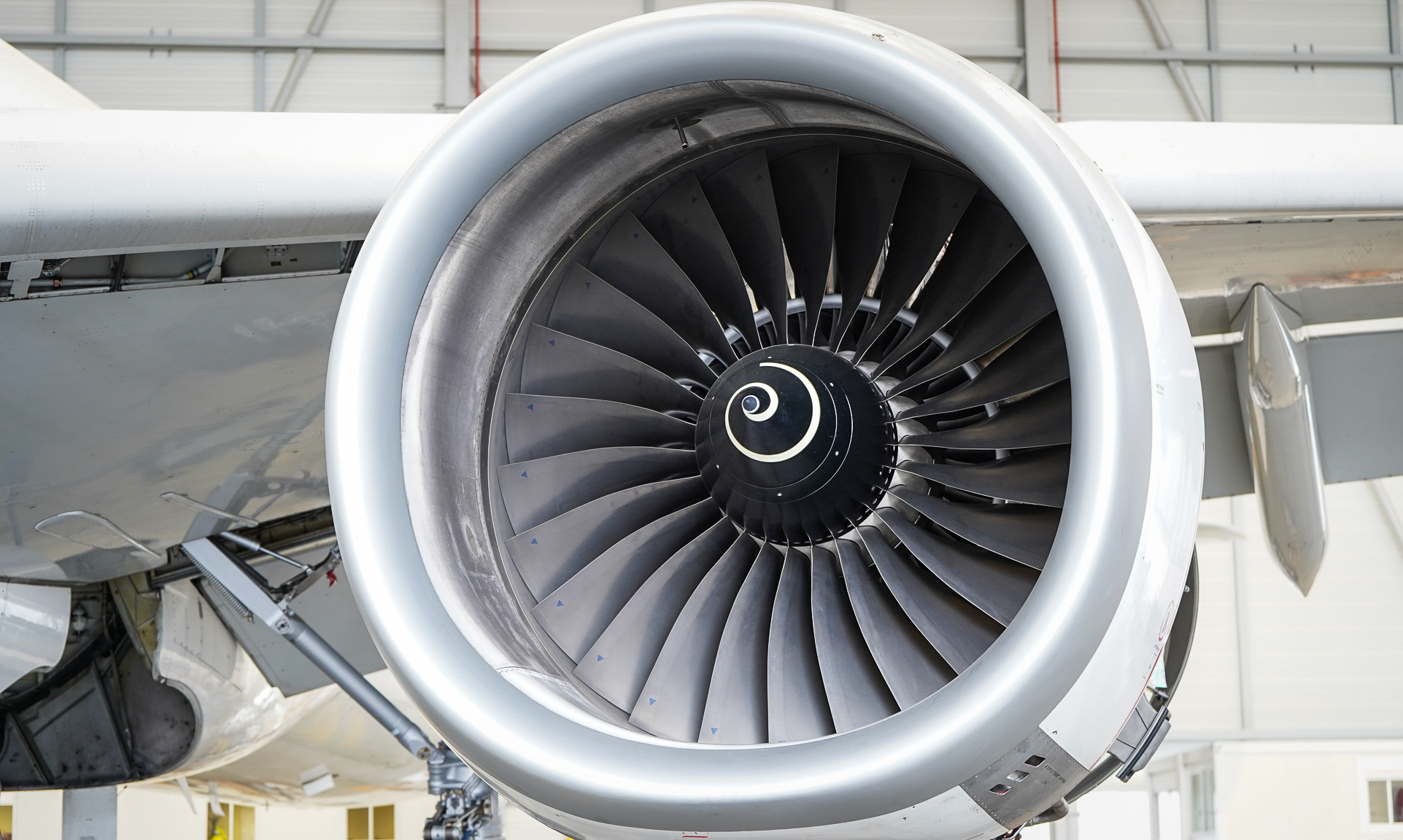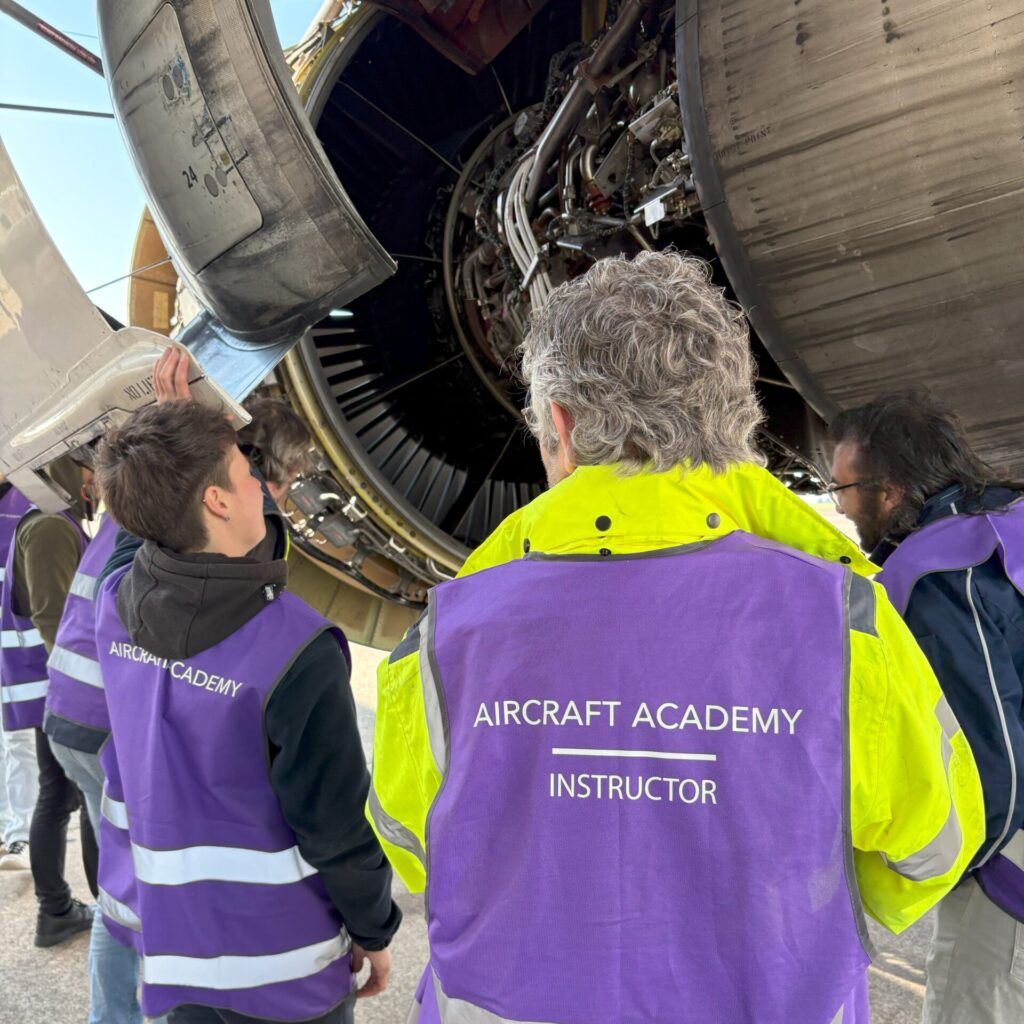Aviation Maintenance – Composite Repair: An Essential Core Competency
In the Q3 edition of Aviation Maintenance Magazine, François Fermaut, Director of Operations – Châteauroux at Vallair, spoke to Mark Robins about composite repair.
Composite materials are being used increasingly in the aerospace industry thanks to their light weight and strong durability, meaning the ability to repair them expertly and efficiently is essential. Fermaut shares the three most common challenges when repairing composites and explains Vallair’s non-destructive testing (NDT) policy, which uses thermographic and ultrasonic inspection to clearly map damage.
To read the full article, click here.
Article courtesy of Aviation Maintenance.
Success for the Vallair team at MRO Europe 2025

From take-off to landing, the Vallair booth stayed buzzing throughout the most attended MRO Europe on record!
The team had a successful show connecting with partners and customers across the industry. Highlights included Group Chief Commercial and Marketing Officer Pascal Parant’s interviews with Rob Munro of HMG Aerospace and Lindsay Bjerregaard of Aviation Week Network.
Thank you to everyone who visited our booth to discuss our expert MRO and asset management services.
Vallair Strengthens the Governance of its MRO Centres to Support Future Growth
Luxembourg/London, 13 October 2025: In line with market expectations and customer needs, Vallair announces a new governance structure across its maintenance centres. The reorganisation is designed to enhance management efficiency and sustain the Group’s long-term development ambitions.
- Grégoire Lebigot resumes his role as CEO of Vallair Industries, and now also as CEO of the Châteauroux MRO centre. He will be supported on site by François Fermaut, appointed Director of Operations. Formerly in charge of the aerostructure centre, Mr. Fermaut’s scope now extends to the engine business unit and the CHR2 airframe maintenance centre.
- Gilles Fossecave has been appointed CEO of the Montpellier MRO centre. He is supported on site by Jean-François Deorocki, Director of Operations.
This site-based management model will reinforce operational proximity and is entrusted to seasoned professionals who are widely respected within the aviation and MRO industry.
At Group level, Maxime Gorsse, currently Treasurer and CEO of Vallair Asset Solutions, has been promoted to CFO. This newly created position will consolidate accounting, finance, and investor relations, a practice proportional to the scale and ambition of Vallair.
These changes are part of Vallair’s broader strategy for an anticipatory stance on industry transitions, from the rise of composite-intensive aircraft to new technologies and evolving airline expectations.
“This new organisation is fully aligned with our strategy: staying close to our customers, strengthening the operational excellence of our MRO centres, and preparing for the future. Vallair is moving forward with the determination to anticipate the impactful transformations of the aviation industry and to respond with rigour, agility, and passion.” – Grégoire Lebigot, President of Vallair Group
Safety, quality, proximity, customer focus, and adaptability remain Vallair’s guiding principles.
To read the press release in French, click here.
Freighter Trends – Component MRO Growth
In the September issue of Freighter Trends, Pascal Parant, Group Chief Commerical & Marketing Officer at Vallair, spoke about the growth of the component maintenance, repair and overhaul (MRO) sector.
He considers that the main motivations behind this growth are higher fleet utilisation and aging aircraft. “Current engine option (CEO) are remaining in service longer, which results in less used serviceable material (USM).” What is more, parts from original equipment manufacturers (OEMs) and their competition command high prices.
Parant also explores the role predictive maintenance and AI will have in the future of the industry. “At Vallair, we note that these tools have the ability to reduce unscheduled removals ad on-wing failures by up to 30% depending on the program and source. However, they will not extend component lifecycles; rather, they will optimise lifecycle management. Additionally, their effectiveness depends on data quality and volume – a solid historical baseline is essential to optimise AI. It is a powerful tool, but certainly not a universal remedy.”
To read the full article, click here.
Article courtesy of Freighter Trends.
AviTrader MRO360°- Cabin Retrofits: It’s All About Passenger Experience
Vallair Chief Commercial and Marketing Officer, Pascal Parant, spoke to David Dundas on the subject of cabin retrofits in the September 2025 issue of MRO 360°.
“A cabin standard rarely remains competitive for more than ten years,” he explains. He emphasises the importance of distinguishing retrofits by the aircraft type and the operator’s profile. Therefore, a thorough understanding of the market is essential. “On long-haul routes, for example, competition to offer the most advanced product is particularly fierce. We’ve seen Air France launch its new first-class suite, as well as numerous business-class refurbishments introducing 2-1-2 layouts, mini-suites, and the latest IFE features, including personal headset pairing. As these features become the norm, airlines must upgrade their cabins to remain competitive and attract high-revenue customers.”
To read the full article, click here.
Article courtesy of AviTrader.
InsideMRO – Nacelles Designs Get Lighter, Stronger, and Less Complex
Vallair’s Operations Director – Aerostructures, Francois Fermaut, spoke to Paul Seidenman and David Spanovich about nacelle designs for the September 2025 issue of InsideMRO.
Reducing complexity is paving the way for the next generation of nacelle designs, explains Fermaut. Thanks to the availability of new materials and moves to decrease the number of moving parts, nacelles of the future will be lighter and more durable. “Combined with streamlined designs, part count minimisation and simplified control systems, Vallair sees the industry is on track to continue reducing nacelle weight, enhancing fuel efficiency, lowering emissions and reducing the cost of production.”
To read the full article, click here.
Article courtesy of Aviation Week Network.
Freighter Trends – The Maintenance Implications of Aging Fleets and OEM Delays
In the June 2025 issue of Freighter Trends, our Group Chief Commercial & Marketing Officer, Pascal Parant, discusses the ageing fleet implications for global maintenance demand amid OEM delivery delays.
Parant comments on the factors that are currently driving demand, “We are experiencing a perfect storm. Since 2019, approximately 2,000 aircraft that were expected to be produced have not been delivered. In some ways, this is a positive outcome – had they been produced we would now be facing issues related to over capacity.”
To read the full article, click here.
Article courtesy of Freighter Trends.
Freighter Trends – Engine Leasing & Trading Amid Supply Chain Strains and Diverging MRO Strategies
In the June 2025 issue of Freighter Trends, our Group Chief Commercial & Marketing Officer, Pascal Parant, discusses the current trends in Engine Leasing & Trading amid supply-chain strains and diverging MRO strategies.
Parant comments on the engine leasing market’s performance over the past 12 months, “It’s been like a casino. Green time has been heavily utilised, and now we’re reaching the limits.
“Some airlines are even leasing entire aircraft just to access their engines, as this remains a more cost-effective solution than leasing spare engines alone.”
To read the full article, click here.
Article courtesy of Freighter Trends.
Aircraft Academy Receives EASA Part 66 Approval for Aircraft Maintenance Training and Examinations
Le Bourget, Paris, France – 16th June 2025: Aircraft Academy, a Vallair Group company and a leading provider of aviation training solutions, is proud to announce that it has received formal approval from the European Union Aviation Safety Agency (EASA) to offer EASA Part 66 training and examinations. This prestigious certification enables Aircraft Academy, which is already a Part-147 training facility, to deliver comprehensive training and assessment services for aircraft maintenance engineers across multiple categories.
The EASA Part 66 certification is an internationally recognised standard that ensures the highest levels of competence and compliance for licensed aircraft maintenance engineers. With this approval, Aircraft Academy can now provide theoretical and practical training, as well as conduct approved examinations in accordance with EASA’s rigorous standards.
“We are delighted to announce that we have achieved this important milestone at the Paris Air Show 2025,” said Armel Jezequel, CEO of Aircraft Academy. “This approval not only validates the quality and integrity of our training programmes, but it also enables us to contribute directly to the development of highly skilled professionals within the global aviation maintenance community.”
“Under Part 66 our training will include categories such Category B1 (Mechanical), and Category B2 (Avionics), among others. The training programmes are designed to meet the evolving needs of the aviation industry and support both aspiring and current engineers in attaining their professional goals,” Jezequel adds. “We are experiencing huge demand from all over the world for aircraft mechanic training. Students from as far away as the Philippines and India are joining their European colleagues of all ages to attain qualifications or upskill to new aircraft/engine types.
“It makes sense to talk to Aircraft Academy because we can offer the full package – from initial training, to aircraft type modules, plus real EASA accredited Part 145 on-the job training. We are especially fortunate, being part of the Vallair Group, to be able provide practical training experience on-site at Vallair’s MRO hangars in Châteauroux and Montpellier in France – this is a huge benefit.”
Adding the Part 66 approval reflects Aircraft Academy’s ongoing commitment to quality, safety, and regulatory compliance in aviation education. As demand for qualified maintenance engineers continues to grow worldwide, this new capability underpins Aircraft Academy’s ambitions to build a reputation for excellence within the aviation training sector.
Visit Aircraft Academy at the Paris Air Show 2025: Hall 2b, G93
Aircraft Academy provides EASA Part-147 and Part 66 Maintenance Training Programmes (Theoretical & Practical) for aircraft technicians and engineers. With our EASA Part-147 Approved Training Centre, and EASA Part-145 Approved Maintenance Facilities at Vallair’s commercial MRO stations in Châteauroux and Montpellier in France. www.aircraft-academy.com
AviTrader MRO 360°- Aircraft Disassembly and Used Serviceable Materials
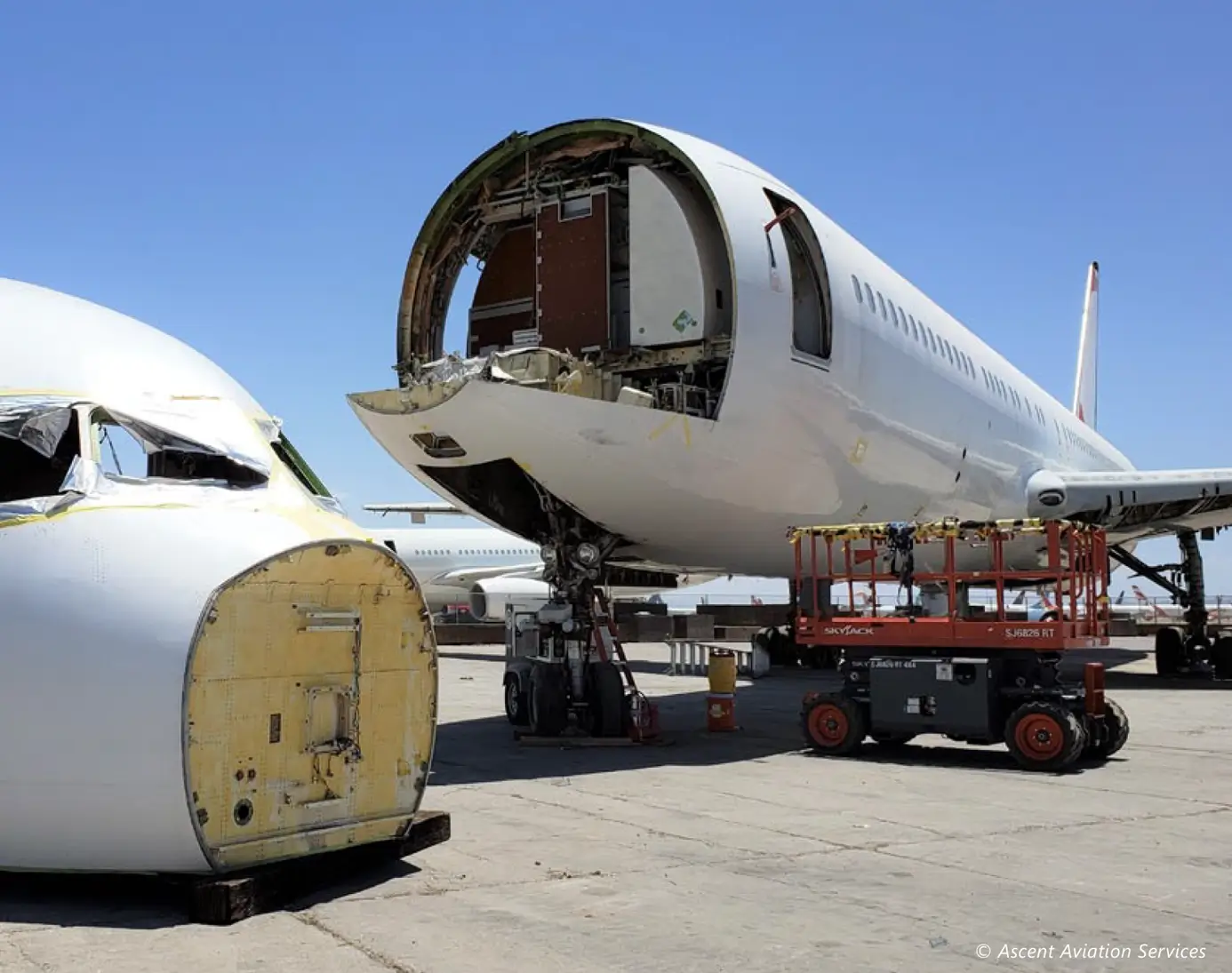
In the April issue of AviTrader MRO 360°, our Group Chief Commercial & Marketing Officer, Pascal Parant, discusses the current trends and challenges in the MRO supply chain. An in-depth discussion into the disassembly process.
Parant comments, “Storing and maintaining an aircraft with the hope it will fly again comes with a cost. This can sometimes be offset by depreciation strategies beneficial to lessors or airlines. But if you’re sitting on full maintenance reserves, the calculation becomes straightforward: sell the aircraft, cash in quickly, and let the USM specialists like Vallair handle the asset.”
To read the full article, click here.
Article courtesy of AviTrader.

